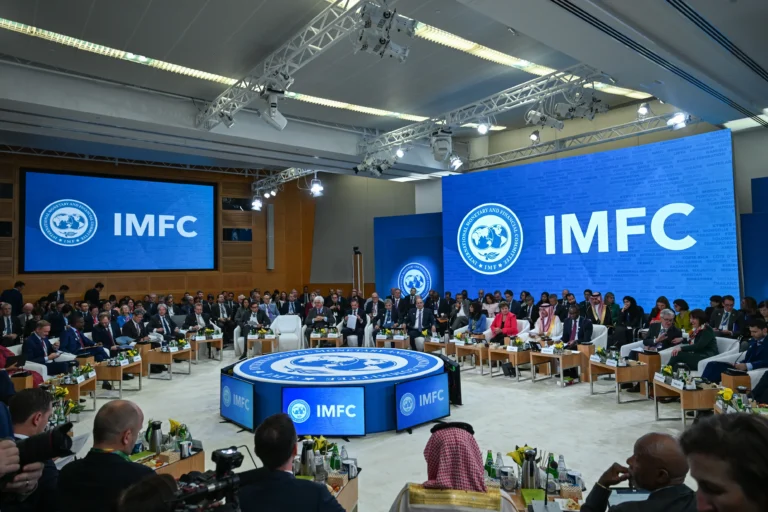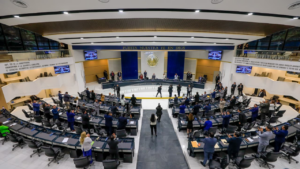The imposition of reciprocal tariffs, led by the United States on more than 70 countries, has become one of the main risk factors for the global economy, warned IMF Director Kristalina Georgieva and World Bank President Ajay Banga. During conferences prior to the Spring Meetings, both leaders agreed that these measures are generating uncertainty for investment and slowing down the flow of supply chains.

Georgieva warned that increased trade barriers have raised financial volatility and threaten to further weaken global growth prospects. Although they do not foresee a recession, they do anticipate a deeper economic slowdown if uncertainty persists.
The IMF had estimated a global growth of 3.3%, but this could be adjusted downwards when the expectations are updated next tuesday in the World Economic Outlook report. The head of the organization stressed that the longer the uncertainty lasts, the greater the global economic impact will be.

Banga called for multilateral trade negotiations and pointed out that the most open countries have historically shown greater resilience in the face of economic crises. He warned that emerging economies, which are more dependent on trade, are being the hardest hit.
Both organizations pointed out that tensions between powers such as the United States, China and the European Union have left smaller countries trapped, increasing the risks for economic models based on exports and directly affecting global productivity.

Against this backdrop, the IMF and World Bank are preparing a series of tools to mitigate the effects of trade disruptions and sustain growth. In addition, they recommend that countries strengthen their domestic markets and competition while redefining the rules of international trade.







